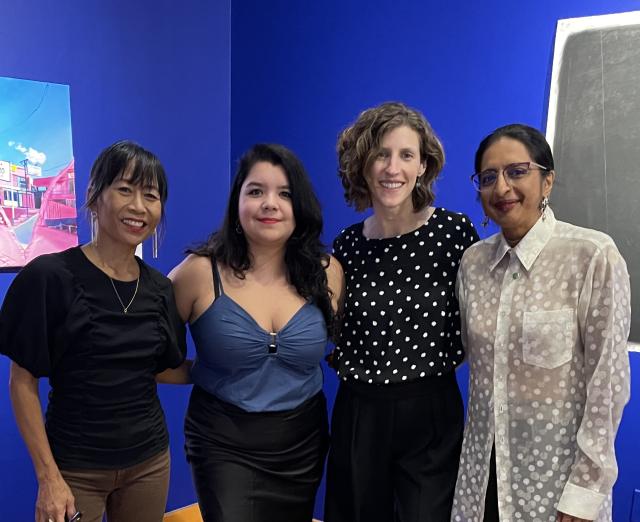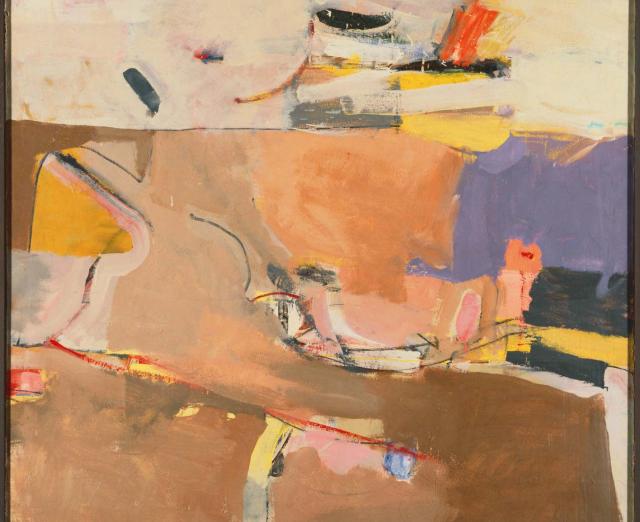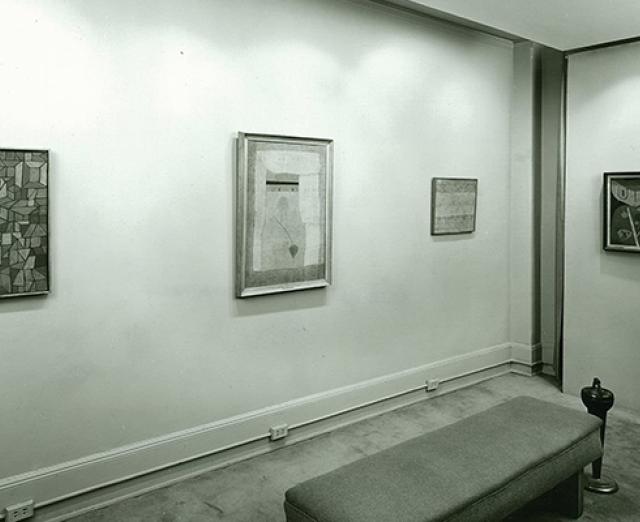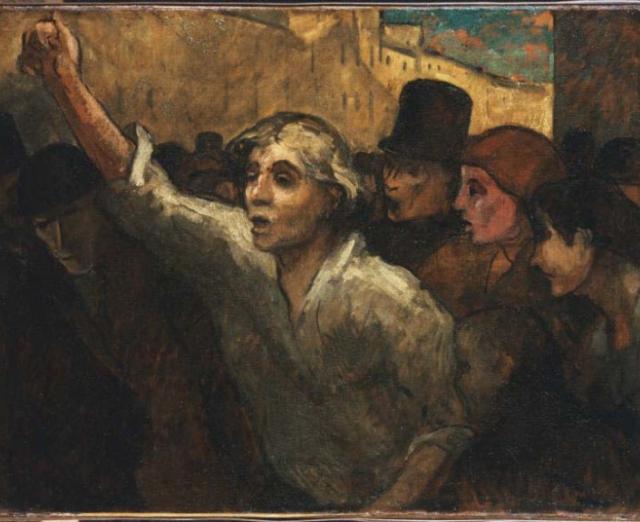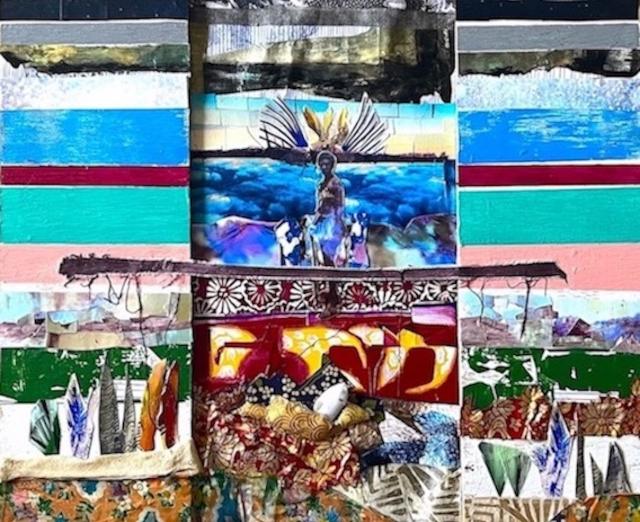Meet Inside Outside, Upside Down Artist Kokayi
Exhibitions & Events
2021-22 Sherman Fairchild Fellow Shiloah Coley speaks with Grammy-nominated multidisciplinary artist Kokayi, whose photography is in the Phillips 100th anniversary Juried Invitational Inside Outside, Upside Down.
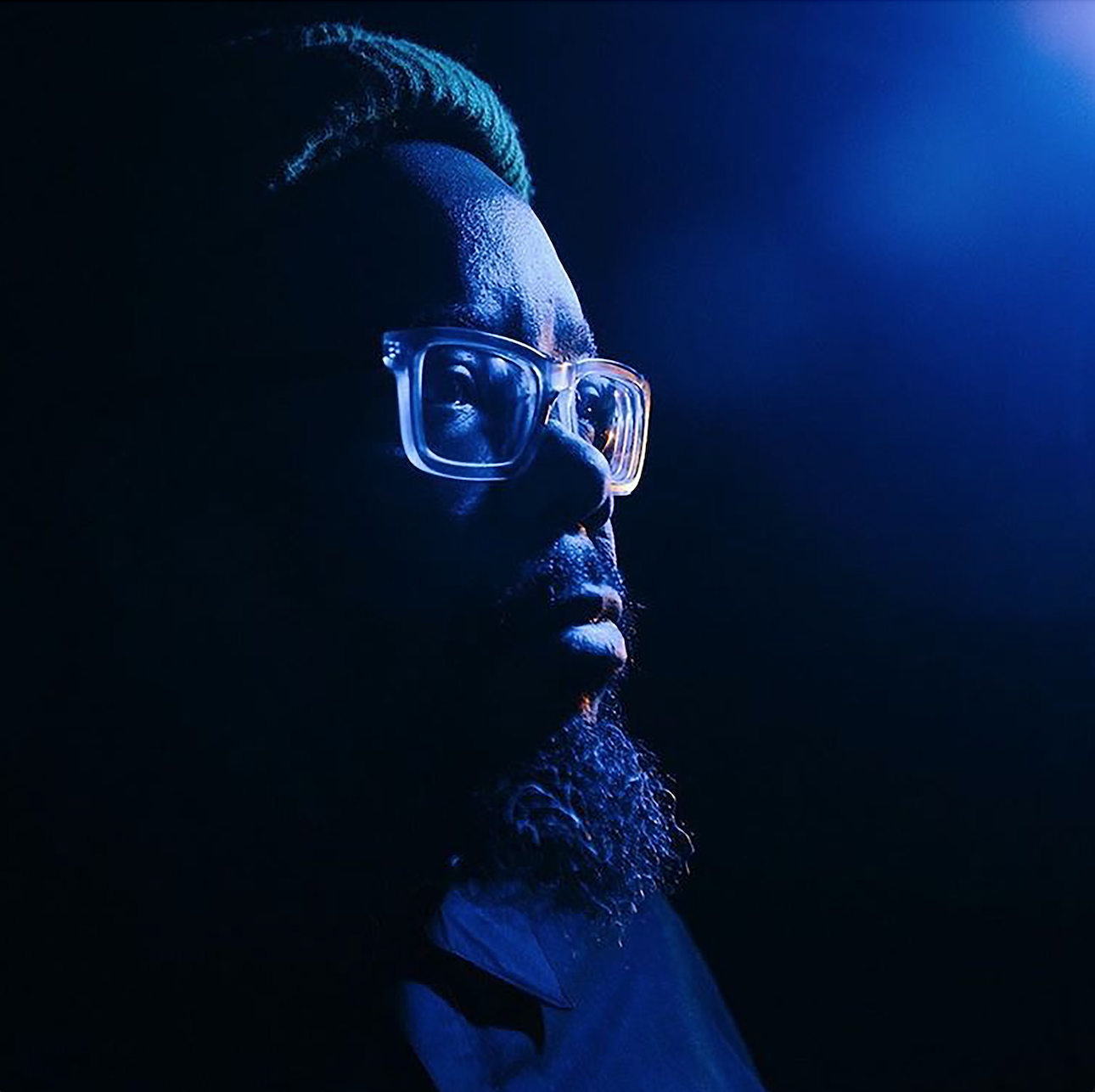
Kokayi photographed by Lexey Swall, Courtesy of the artist
“No, you’re going to take the pictures.” That’s what Kokayi’s wife said to him back in 2019 when he considered searching for a photographer to create the visuals alongside the record he was working on, “HUBRI$,” as a Halcyon Fellow. He hesitated to consider himself a “photographer” at the time. In his fellowship proposal for the project, he wrote that he would be hiring a photographer to shoot the visuals.
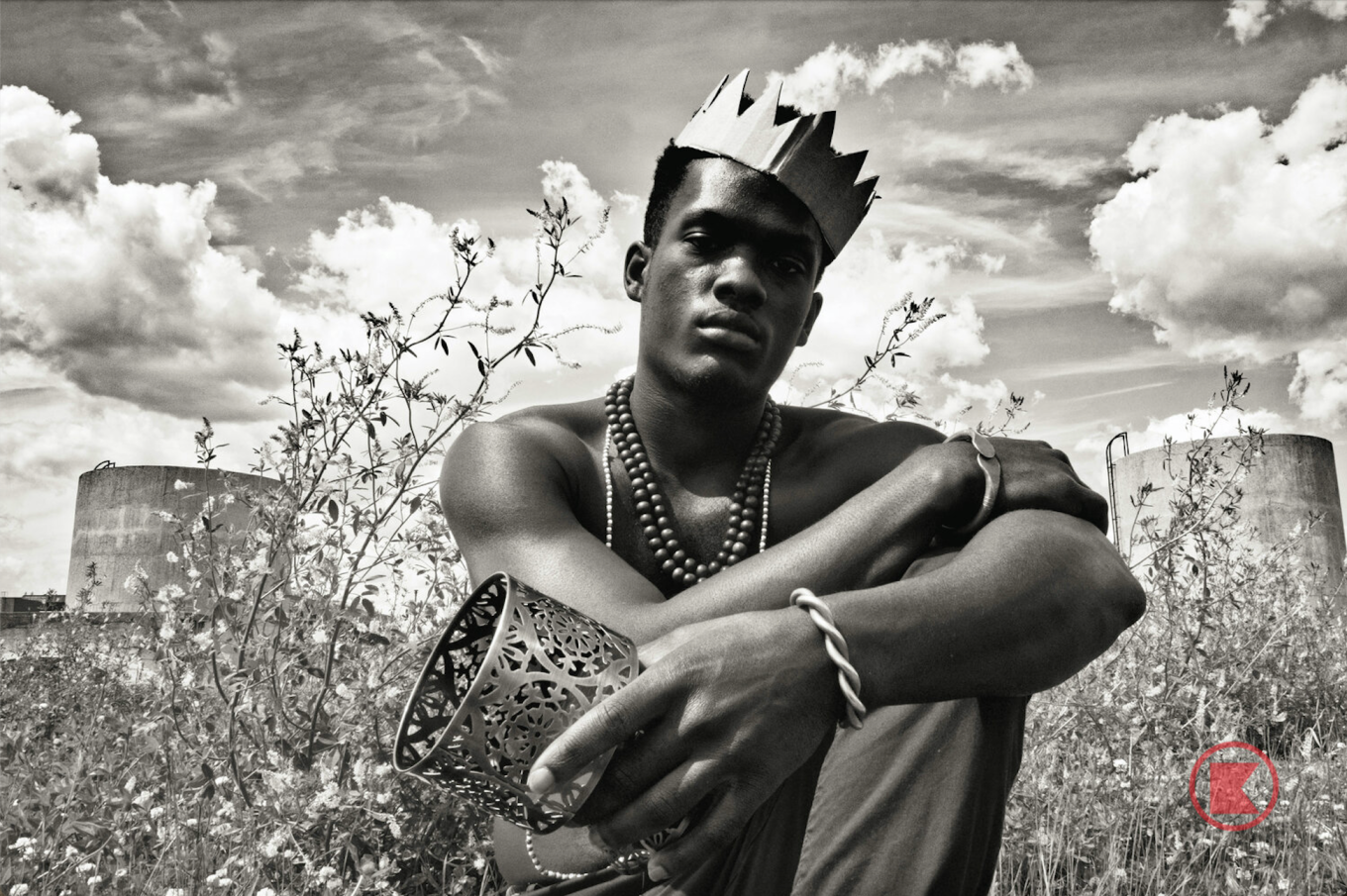
Photo from "HUBRI$" visuals, Courtesy of the artist
Anytime he’s gone on tour, he’s taken photos with intent, looking to document and capture a moment. Yet, the imposter syndrome he felt about being the photographer for his own project crept up. “When you’re around a bunch of artists who you know are at the top of their field, that’s the other intimidating part,” said Kokayi, who has always been surrounded by circles of creatives including folks with great eyes working in photography and videography. After expressing feelings of discomfort around shooting the visuals for his work, his photographer friends were the ones to push him, suggesting he needed to just pick up the camera and holler at them when he was ready to get into it. And he did, he picked up the camera and learned along the way. It wasn’t the start of something new, but a recognition of something always there, just waiting to be developed. From childhood, Kokayi’s interests spanned a wide range of artistic practices from graffiti to music-making. He attributes some of this initial exploration and multi-faceted approach to the hip hop culture he grew up in. “Hip hop culture started out multi-faceted. There were a multitude of kids that breakdanced, did graffiti, DJed, beatboxed. You know everything—the fashion and style, they did all the stuff. It wasn’t like you did one thing. You weren’t a monolith,” said Kokayi. “Black people aren’t monoliths. Hip hop isn’t monolithic. People aren’t monolithic, but you know they try to paint us, especially as a Black person, try to paint me into a corner based on my pedigree.”
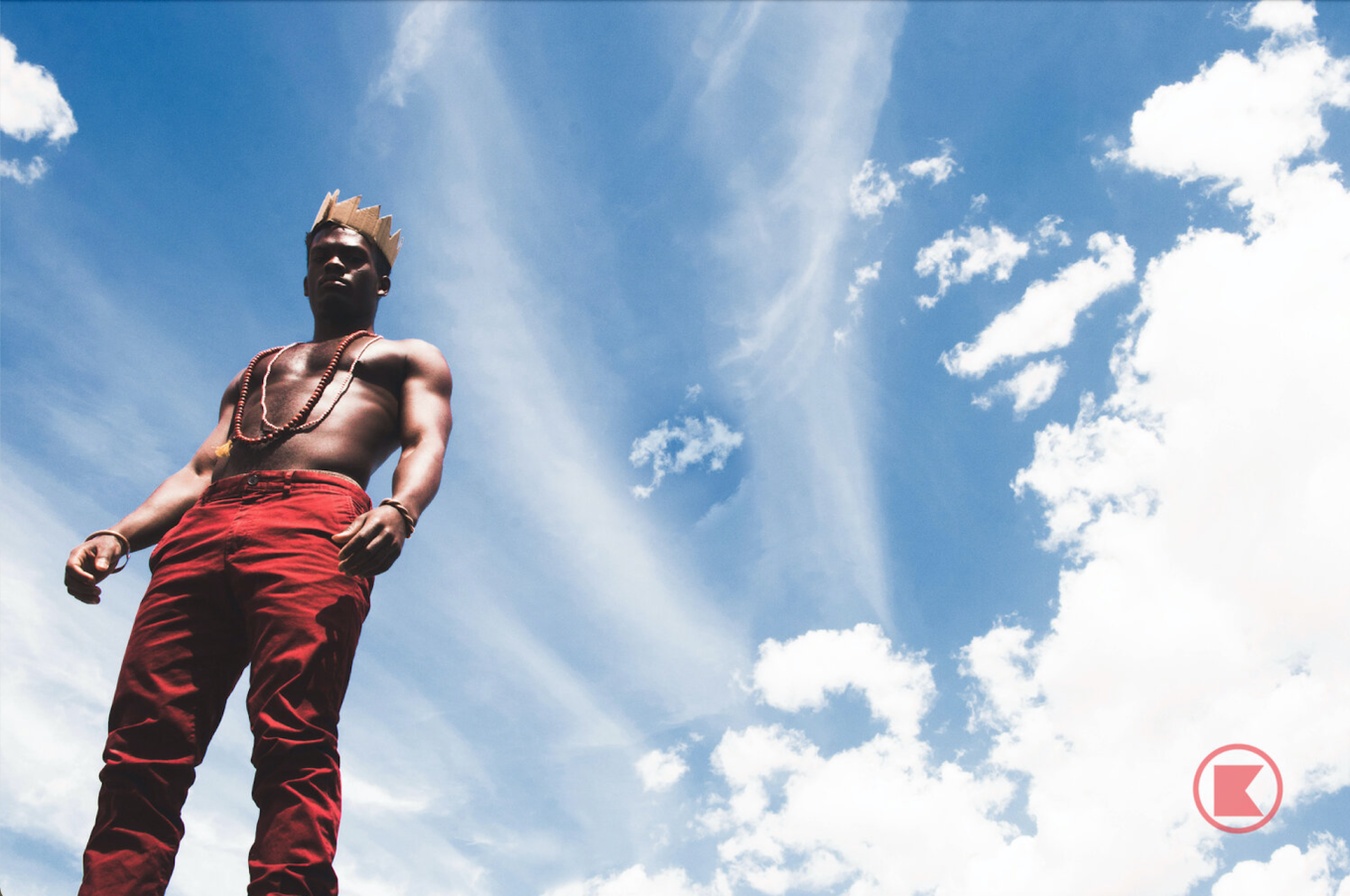
Photo from "HUBRI$" visuals, Courtesy of the artist
The artist reminds the youth he works with as a mentor not to allow others to dictate how they express themselves. He finds himself reminding adults about this too. A man once expressed that he didn’t have any musical talent to Kokayi as they waited in an airport, and he responded with “Yes, you do. When you were a kid (and this is what I tell the classes), when you were a kid, you would make up songs. You would make up songs and plays and poetry and all kinds of things just expressing yourself artistically. And the time that you stopped is when somebody told you you weren’t good. That’s when you quit.” Kokayi doesn’t quit. He keeps learning whether it be through a book, sweat equity, or his practice. He continues to develop what’s always been there even if that practice or craft hasn’t been as deeply explored as some of his others. So when his friend called to ask if he could come take pictures of her beauty shop before she closed the doors for the last time, he was there. His friend built the shop from the ground up, doing the interior design work piece by piece, and paying for it all through her labors as a hairstylist doing heads in her home. He watched her open the shop. Now, he photographs her closing the shop.
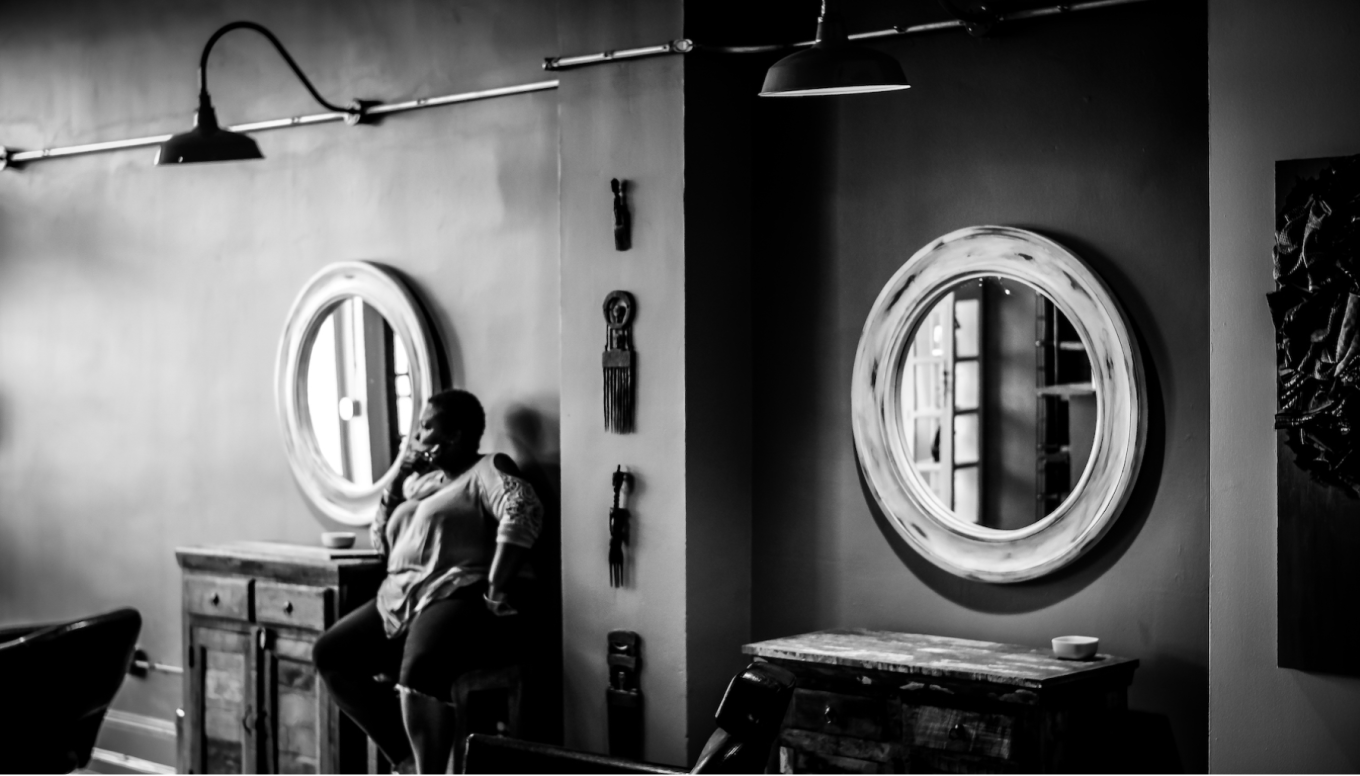
Kokayi, When Letting Go is Love, 2020, Photograph, Giclee Print, Courtesy of the artist
“It was tearing me up to even clip the thing,” Kokayi said in reference to taking the photos. The candid he took of her looking out the window in her final moments with the shop, When Letting Go is Love, is one he debated submitting to the call for Inside Outside, Upside Down. He asked himself if this was trauma porn or an exploitation of his homies’ sadness. He knew the weight of that day and ultimately, decided to be very intentional to share a true narrative in the statement for the piece. While her glance out the window might be interpreted as somber, her composure is held as she sits upright and out of focus. “For me what made sense is it’s out of focus like she’s out of focus right now,” said Kokayi. So many, especially Black women and folks of other marginalized identities, tackled an onslaught of extrapolated inequities with the pandemic. He captured a moment that so many felt and lived. Perhaps not a resilience, but an endurance. The Nicholson Project recently announced Kokayi as one of their upcoming fellows for 2022, and his book, You are Ketchup: And Other Things Known by a Career Musician, comes out in March of 2022.
